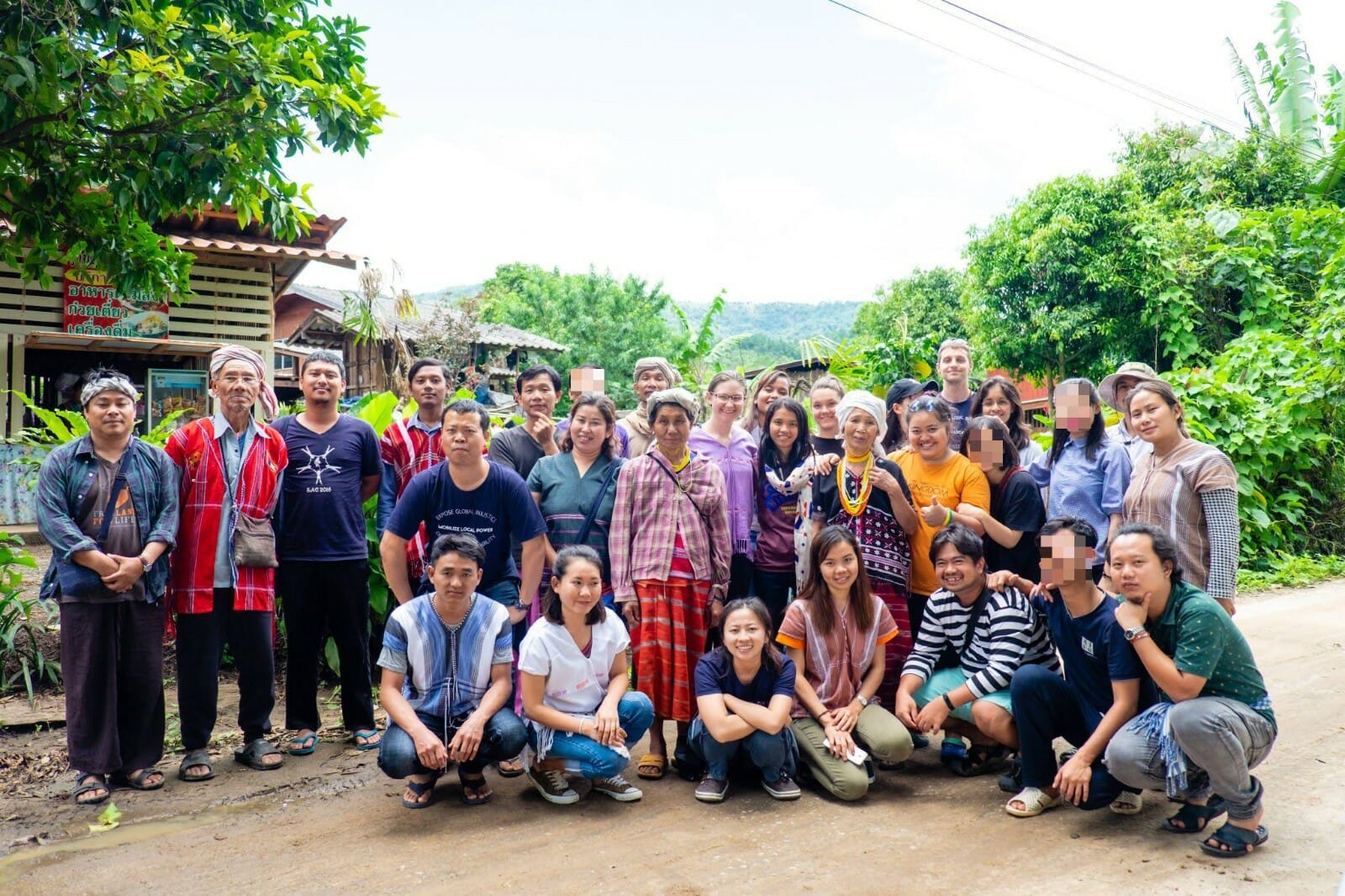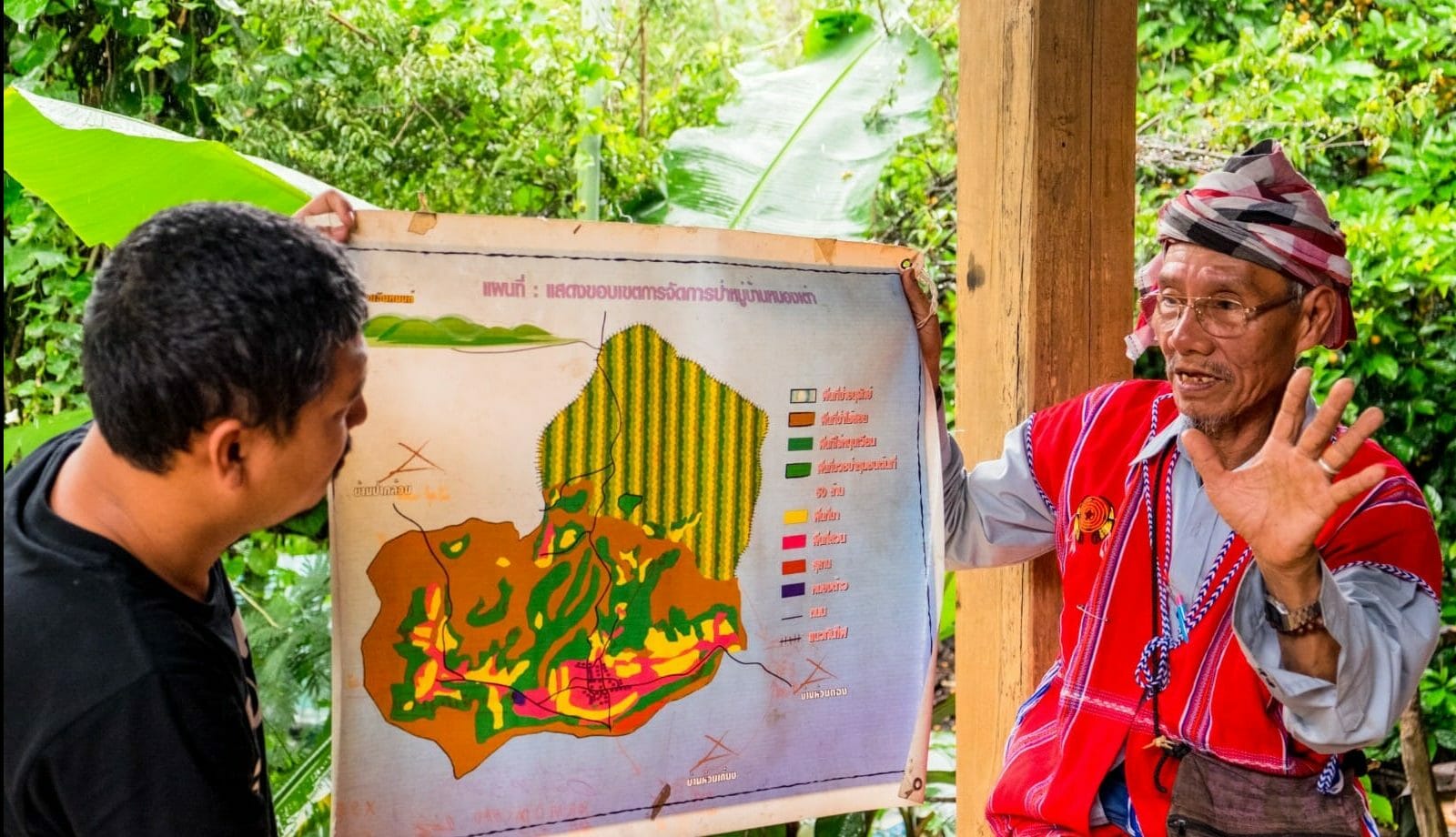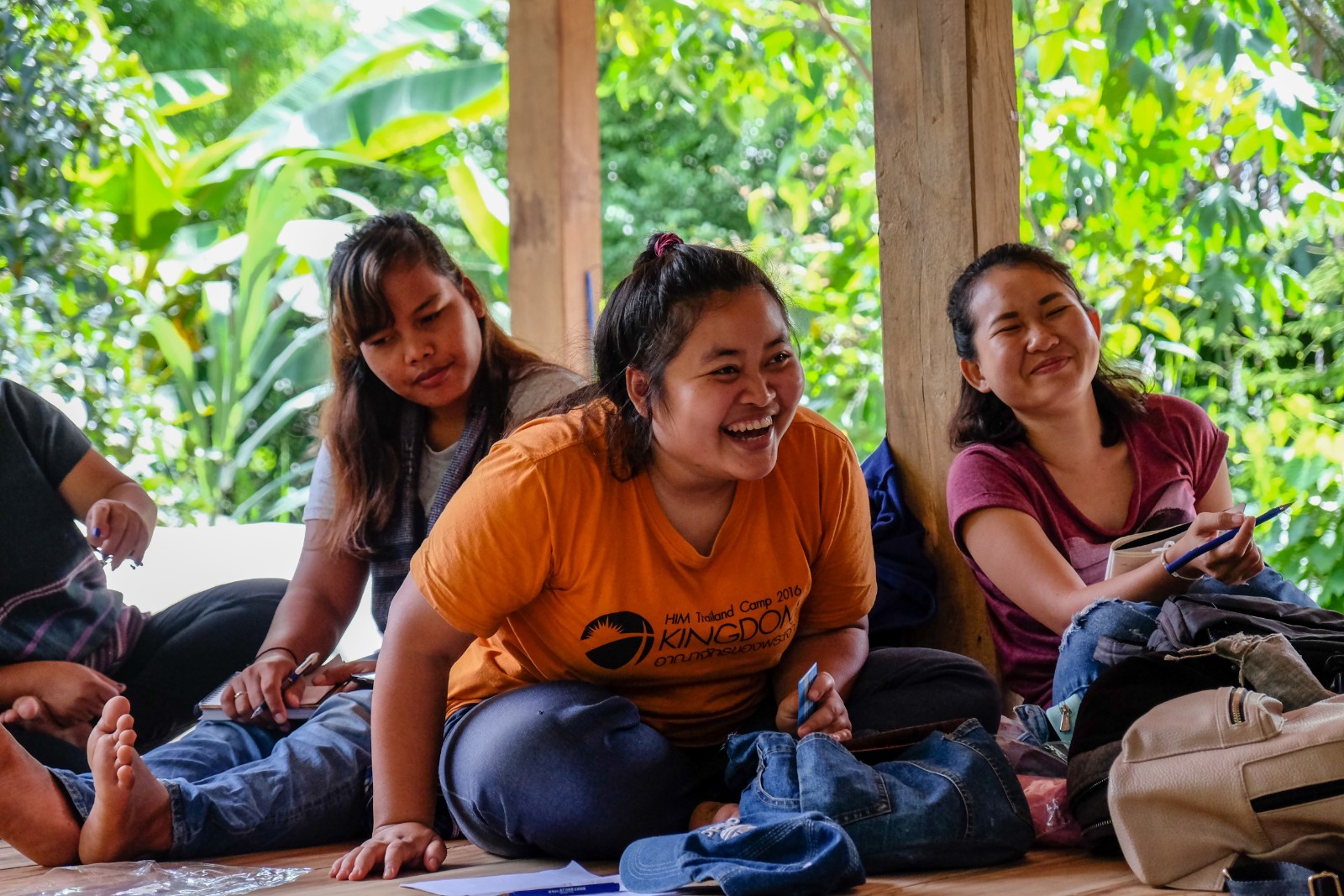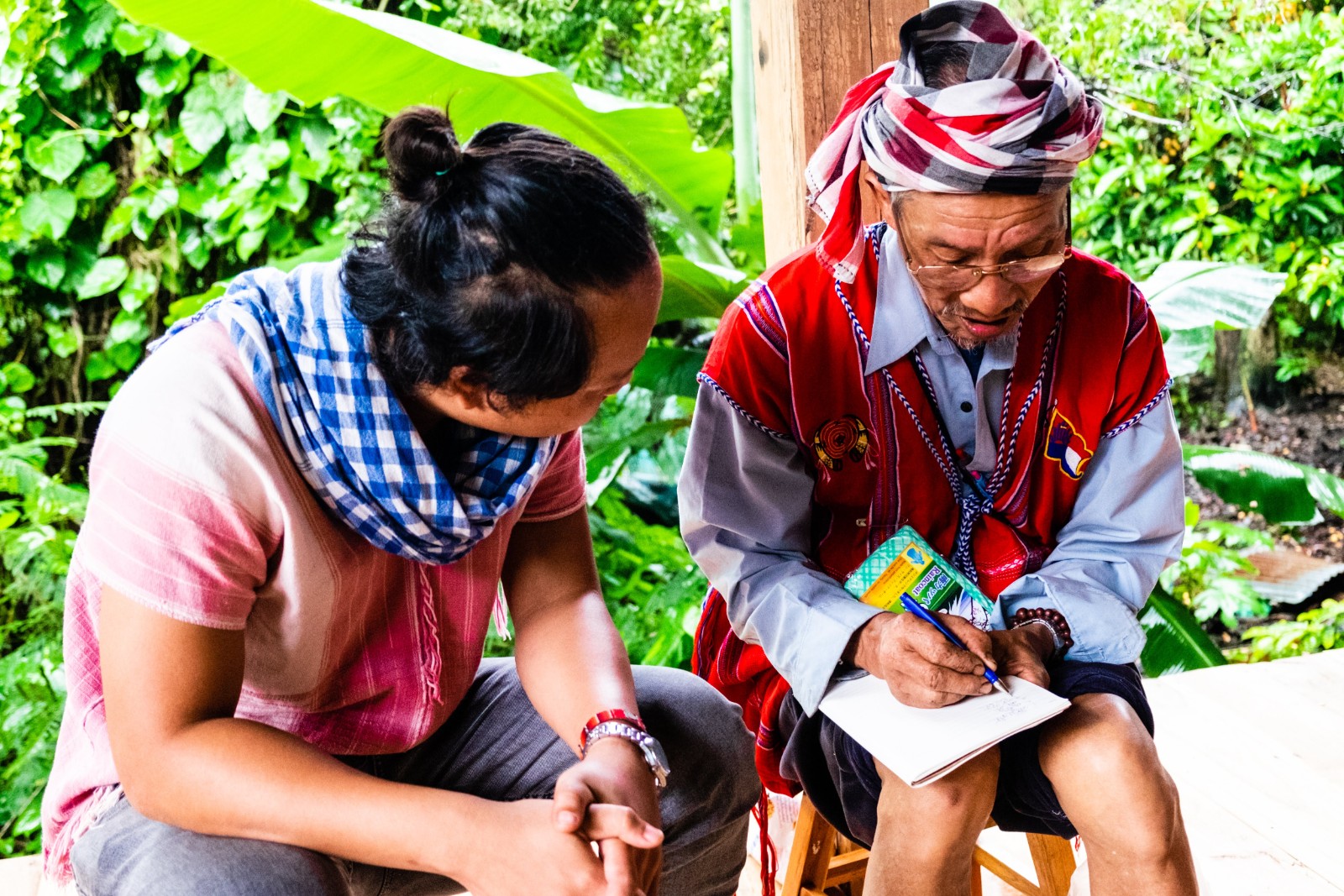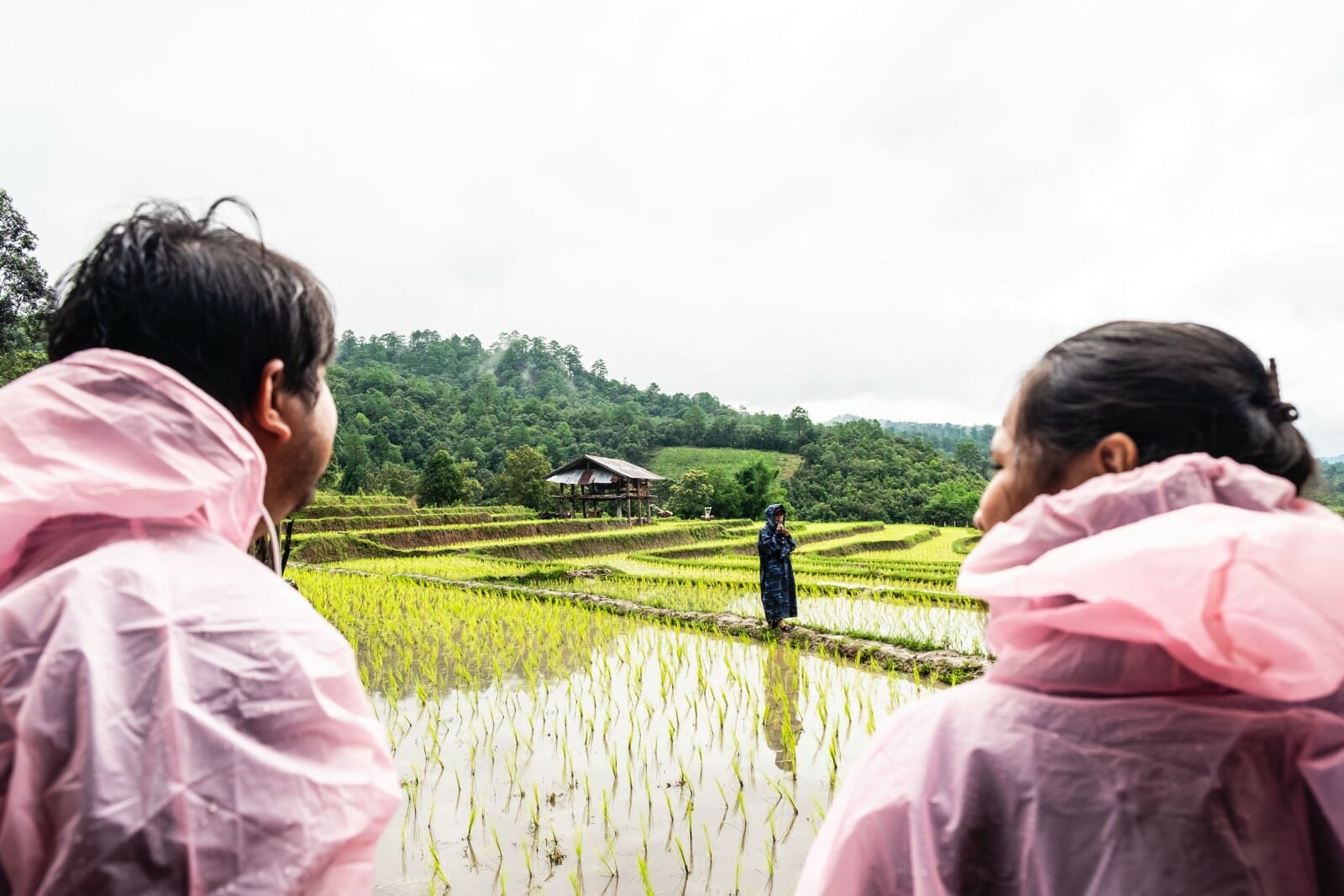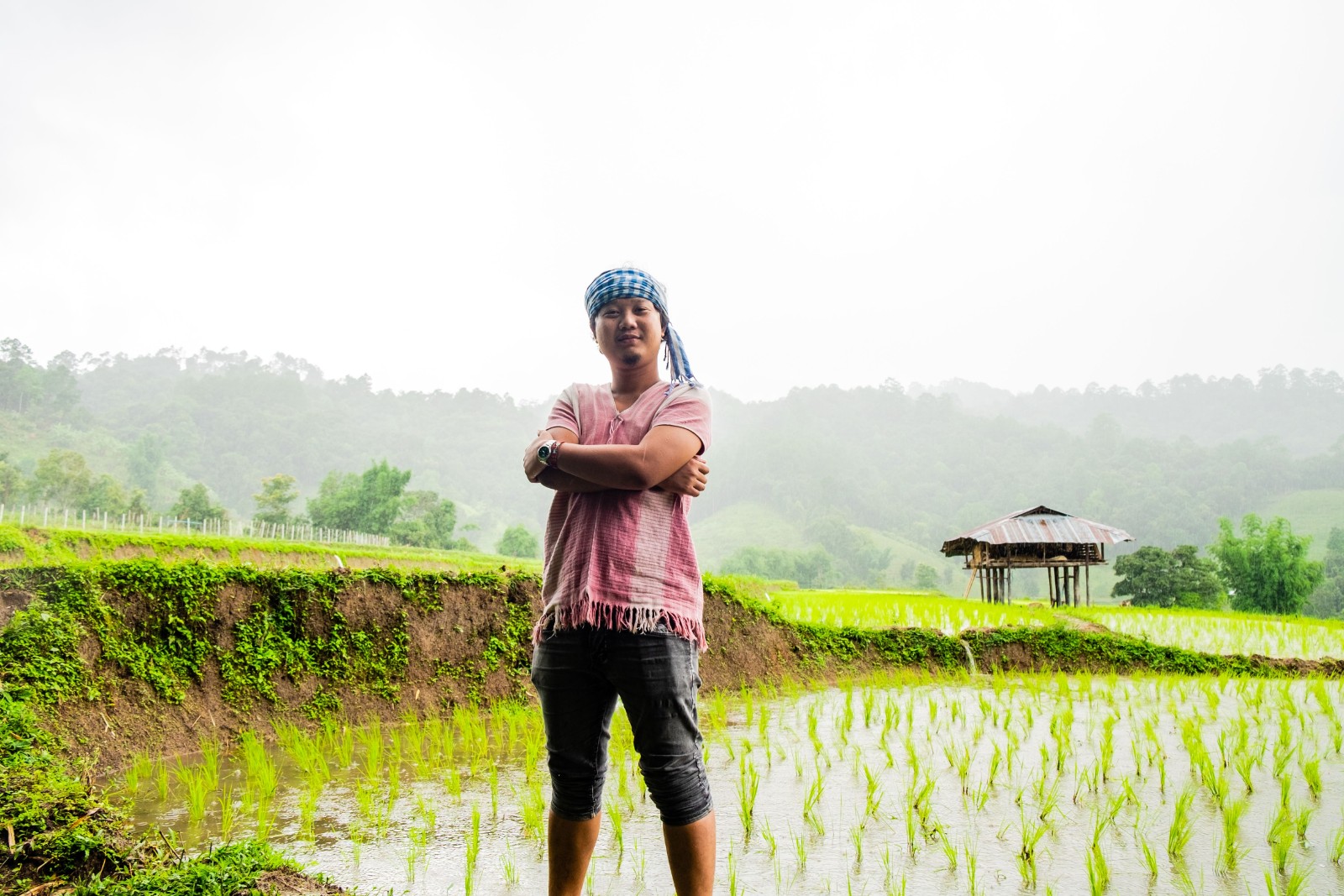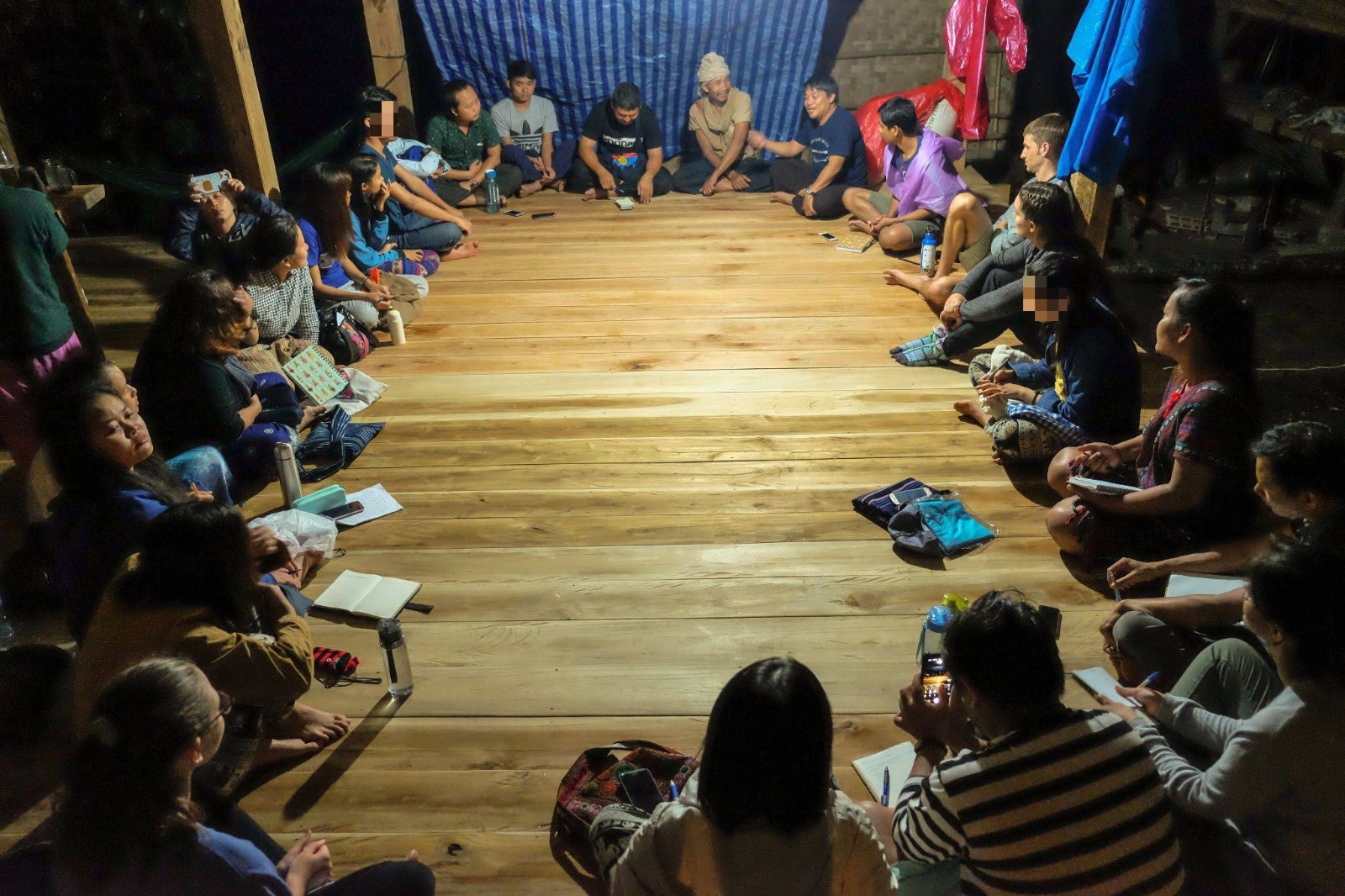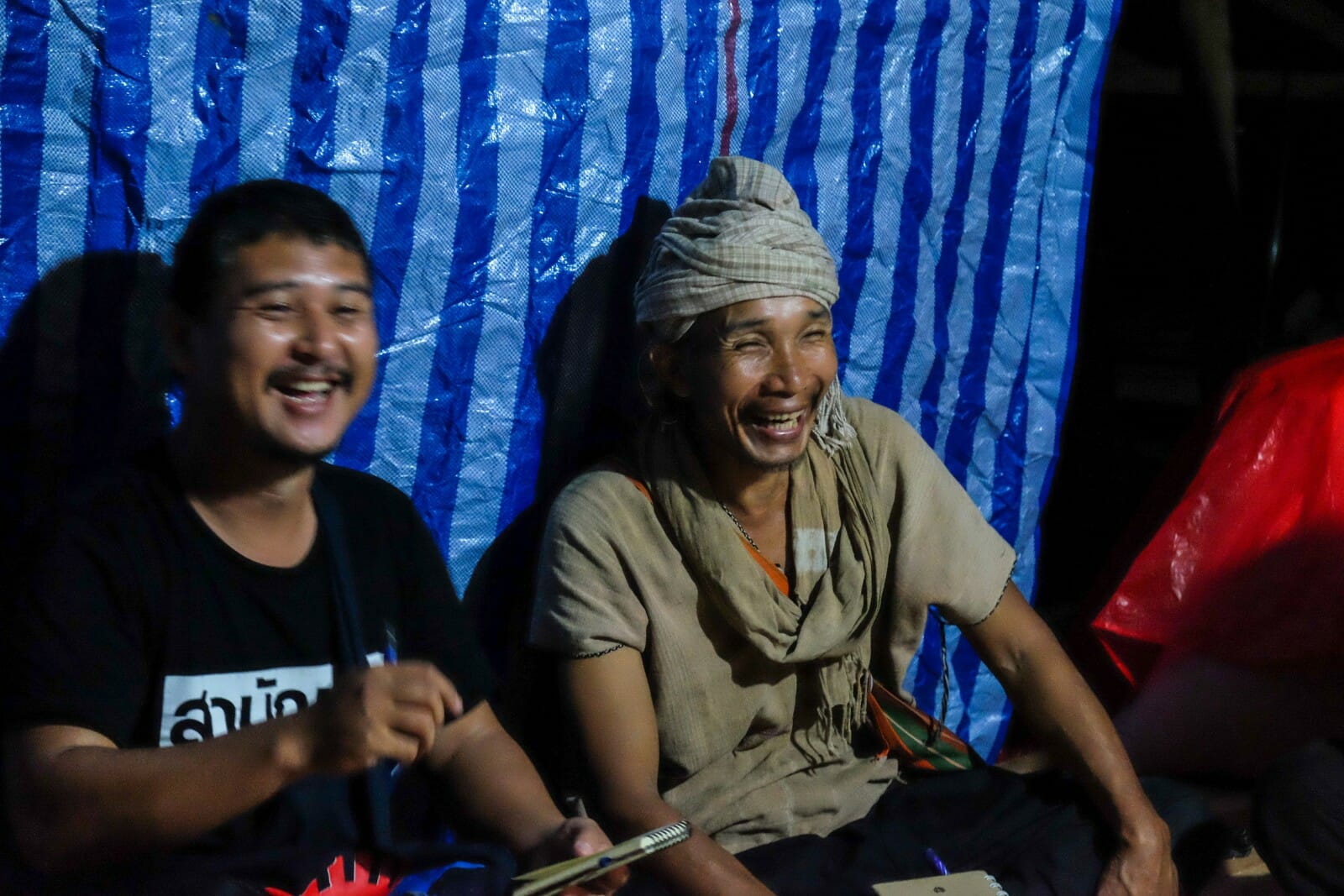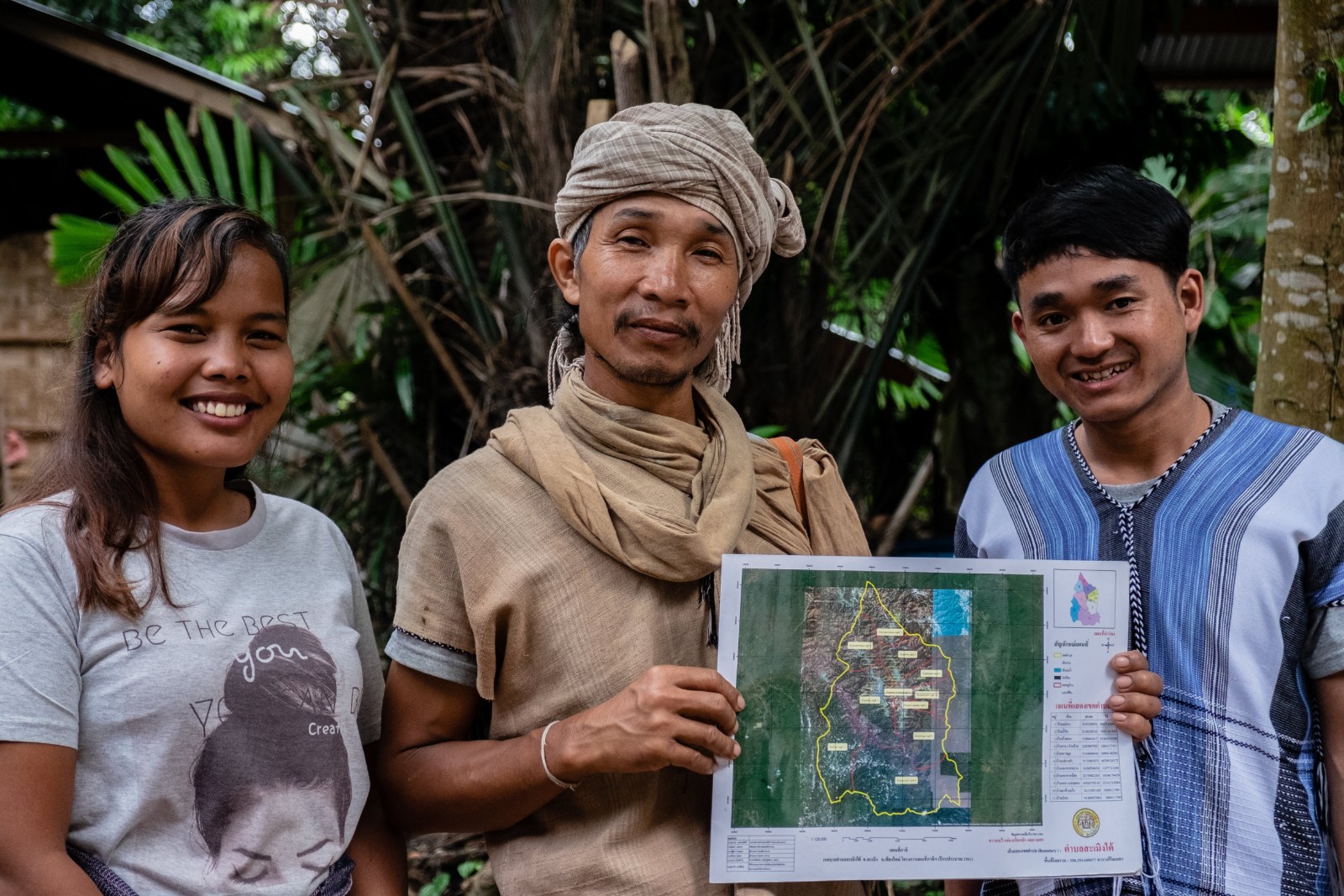EarthRights School students recently travelled to the Ban Nong Tao community in northern Thailand to learn from indigenous Karen climate justice and land rights activists.
As Thailand works to mitigate carbon emissions, new forest conservation and land laws threaten to push the Ban Nong Tao communities off of their land.
EarthRights School students shared their own advocacy experiences with the activists in Ban Nong Tao. Som, pictured here, also comes from an Karen community and has experienced similar challenges, including advocating for the rights of rural indigenous communities with subsistence lifestyles.
Jorni Odochao, pictured here, spoke with EarthRights School students about the specific conservation land laws that criminalize their traditional agricultural practices of rotational farming and the burning of last year’s crops.
Two EarthRights School students from Thailand and Vietnam discuss how climate change has led to increased use of chemicals and new challenges for the farmers of Ban Nong Tao.
An EarthRights School student from Myanmar wears his traditional Karen shirt on a walk with the activists of Ban Nong Tao through their community.
At night, EarthRights School students spoke with Prue Odochao, a Karen indigenous activist who once walked 700 km from Chiang Mai to Bangkok to collect signatures calling for a new community land law for Thailand.
Prue Odochao, a Karen indigenous activist, and Neung, ERI Mekong Legal Associate, talk with EarthRights School students at night on a recent field trip.
Prue Odochao and other indigenous activists across Thailand maintain that their low-impact lifestyles are a part of a solution for climate change mitigation, not a problem.



